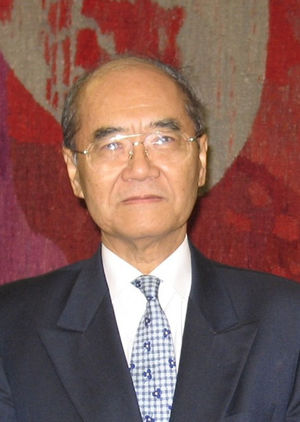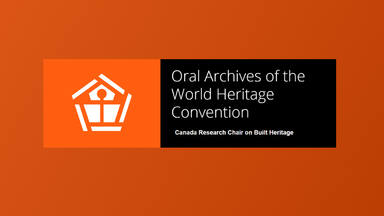
Interview
Koïchiro Matsuura
World Heritage Convention
Koïchiro Matsuura is a Japanese diplomat. A graduate of the Faculty of Law at the University of Tokyo and the Faculty of Economics at Haverford College (United States), he has held various positions in the Japanese Ministry of Foreign Affairs, including as Director General of Economic Cooperation (1988-1990), as Director General for North American Affairs (1990-1992) and then as Deputy Minister of Foreign Affairs (1992-1994). In 1994 he became Ambassador of Japan to France, a position he held until 1999.
He was appointed Director General of UNESCO and completed two terms (1999-2009). UNESCO has published several of his speeches in the form of a compendium called Responding to the Challenges of the 21st Century - Selected Speeches 2002 (UNESCO, 2004).
Koïchiro Matsuura was involved in the ratification by Japan of the World Heritage Convention in 1992. He then served as Chairperson of the World Heritage Committee for one year and presided over its annual session in Kyoto in 1998. In 2008, he published his personal reflections on World Heritage in a book in Japanese and translated into English.
Interview with
Koïchiro Matsuura
24 November 2009, Paris, France
The following audio excerpts are from an interview with Koïchiro Matsuura by Christina Cameron and Mechtild Rössler the 24 November 2009 at UNESCO Headquarters in Paris. The former UNESCO Director General discusses the length of the World Heritage List, draws parallels with the Convention for the Safeguarding of the Intangible Cultural Heritage of 2003, calls for a restructuring of the functioning of the Committee and the World Heritage Centre, and stresses the importance of community involvement and traditional management practices.
- 1. The World Heritage Convention
- 1a. Involvement and participation of Koïchiro Matsuura in the world heritage
- 1b. Aims and objectives of the Convention and the Global Strategy
- 1c. World Heritage List
- 1d. Traditional site management
- 1e. Involvement of local communities
- 1f. Major decisions for the Convention
- 2. World Heritage Committee
- 3. Advisory bodies: IUCN, ICOMOS and ICCROM
- 4. Secretariat of UNESCO
- 5. The concept of Outstanding Universal Value since the Nara Document
Oral Archives of the
World Heritage Convention
Under the leadership of the Canada Research Chair on Built Heritage at the University of Montreal, an international team of researchers conducts interviews with pioneers of World Heritage to capture memories of important moments in the history of UNESCO Convention.
Launched in 2006, this initiative is part of the UNESCO History project that celebrated the 60th anniversary of the creation of UNESCO. The Oral Archives project records the precious witness of people closely associated with the creation and implementation of the Convention. Their recollections and views have greatly enriched the book by Christina Cameron and Mechtild Rössler, Many Voices, One Vision: The Early Years of the World Heritage Convention (Ashgate/Routledge, 2013).
